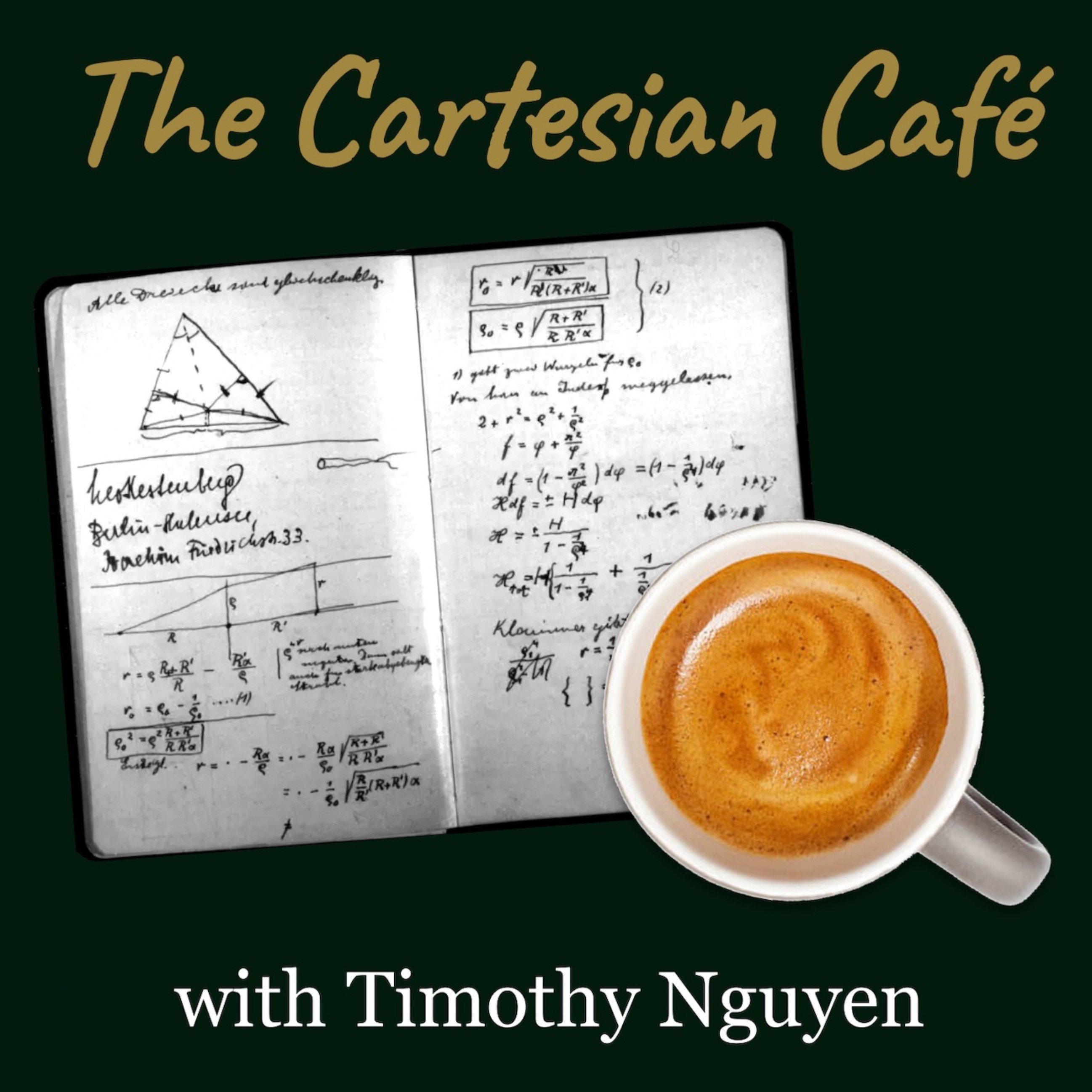Daniel Schroeder | Introduction to Thermal Physics
Description
Daniel Schroeder is a particle and accelerator physicist and an editor for The American Journal of Physics. Dan received his PhD from Stanford University, where he spent most of his time at the Stanford Linear Accelerator, and he is currently a professor in the department of physics and astronomy at Weber State University. Dan is also the author of two revered physics textbooks, the first with Michael Peskin called An Introduction to Quantum Field Theory (or simply Peskin & Schroeder within the physics community) and the second An Introduction to Thermal Physics. Dan enjoys teaching physics courses at all levels, from Elementary Astronomy through Quantum Mechanics.
In this episode, I get to connect with one of my teachers, having taken both thermodynamics and quantum field theory courses when I was a university student based on Dan's textbooks. We take a deep dive towards answering two fundamental questions in the subject of thermodynamics: what is temperature and what is entropy? We provide both a qualitative and quantitative analysis, discussing good and bad definitions of temperature, microstates and macrostates, the second law of thermodynamics, and the relationship between temperature and entropy. Our discussion was also a great chance to shed light on some of the philosophical assumptions and conundrums in thermodynamics that do not typically come up in a physics course: the fundamental assumption of statistical mechanics, Laplace's demon, and the arrow of time problem (Loschmidt's paradox) arising from the second law of thermodynamics (i.e. why is entropy increasing in the future when mechanics has time-reversal symmetry).
Patreon: https://www.patreon.com/timothynguyen
Outline:
00:00:00 : Introduction
00:01:54 : Writing Books
00:06:51 : Academic Track: Research vs Teaching
00:11:01 : Charming Book Snippets
00:14:54 : Discussion Plan: Two Basic Questions
00:17:19 : Temperature is What You Measure with a Thermometer
00:22:50 : Bad definition of Temperature: Measure of Average Kinetic Energy
00:25:17 : Equipartition Theorem
00:26:10 : Relaxation Time
00:27:55 : Entropy from Statistical Mechanics
00:30:12 : Einstein solid
00:32:43 : Microstates + Example Computation
00:38:33: Fundamental Assumption of Statistical Mechanics (FASM)
00:46:29 : Multiplicity is highly concentrated about its peak
00:49:50 : Entropy is Log(Multiplicity)
00:52:02 : The Second Law of Thermodynamics
00:56:13 : FASM based on our ignorance?
00:57:37 : Quantum Mechanics and Discretization
00:58:30 : More general mathematical notions of entropy
01:02:52 : Unscrambling an Egg and The Second Law of Thermodynamics
01:06:49 : Principle of Detailed Balance
01:09:52 : How important is FASM?
01:12:03 : Laplace's Demon
01:13:35 : The Arrow of Time (Loschmidt's Paradox)
01:15:20 : Comments on Resolution of Arrow of Time Problem
01:16:07 : Temperature revisited: The actual definition in terms of entropy
01:25:24 : Historical comments: Clausius, Boltzmann, Carnot
01:29:07 : Final Thoughts: Learning Thermodynamics
Further Reading: Daniel Schroeder. An Introduction to Thermal PhysicsL. Landau & E. Lifschitz. Statistical Physics.
Twitter: @iamtimnguyen
Webpage: http://www.timothynguyen.org
More Episodes
Jay McClelland is a pioneer in the field of artificial intelligence and is a cognitive psychologist and professor at Stanford University in the psychology, linguistics, and computer science departments. Together with David Rumelhart, Jay published the two volume work Parallel Distributed...
Published 10/02/24
Published 10/02/24
Michael Freedman is a mathematician who was awarded the Fields Medal in 1986 for his solution of the 4-dimensional Poincare conjecture. Mike has also received numerous other awards for his scientific contributions including a MacArthur Fellowship and the National Medal of Science. In 1997, Mike...
Published 07/19/24


